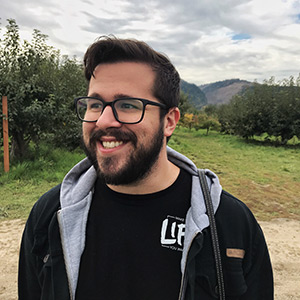Santa Cruz, California, U.S.A.-based Scoot Science has launched a new forecasting tool in an effort to streamline and simplify ocean observing for aquaculture companies.
Scoot’s SeaState dashboard unifies multiple disparate data systems on a farm with monitoring and data of surrounding environmental conditions to give farmers a window into what’s happening below the surface of the water, according to Scoot Science CEO and Co-Founder Jonathan LaRiviere. LaRiviere, who has a doctorate in ocean sciences from the University of California, Santa Cruz, and Scoot co-founder Evan Goodwin – who has an master’s degree in physical oceanography – led a team of oceanographers, agro-economists, data scientists, and software engineers, to create a web-based dashboard presenting unified in-pen environmental data with publicly available oceanographic and meteorological data to make the oceans more manageable, predictable, and insurable.
“The SeaState dashboard puts all the information an aquaculture operation needs to monitor its farm and the surrounding ocean all in one place,” LaRiviere told SeafoodSource. “There are so many natural changes in the ocean environment that can affect fish stocks quickly, and managers don’t have time to weed through so much data coming from so many sources and in antiquated formats.”
The dashboard combines a complex system of marine data visualization tools layered with numerical ocean models and statistical analysis of local waterways, and provides historical, current, and future-focused models of performance, allowing farm managers to monitor current conditions, revisit past weather or mortality events, and plan for weather-related or environmental events that may take place in the future, LaRiviere said. The dashboard has been created to allow room for customization and specific search functions and data-sorting, he said.
“Fish-farming groups have a high tolerance for unconstrained risk on the water. They’ve done an excellent job monitoring the oceans and yet still consider many ocean risks – like low oxygen waters, large temperature swings, and plankton blooms – unpredictable,” LaRiviere said. “We have the tools to constrain those risks and we’re working with farms to increase lead time for extreme ocean events. We’re doing short-term forecasting on the individual farm level and also looking at the longer term trends affecting regional-scale aquaculture.”
Scoot Science has partnered with Bergen, Norway-headquartered Atlantic salmon farmer Grieg Seafood to trial SeaState at the company’s 22 fish farms in British Columbia. The company has figured out a way to file and sort through the 1.5 million data-points each farm generates daily. Grieg Seafood BC Seawater Production Director Dean Trethewey said SeaState presents a solution to the company’s quest to maximize the beneficial use of all that data.
“Farmers in every location take water-quality samples, and we train them on what to look at with different species of plankton and all the monitors in pens and ambient ocean. We continually measure oxygen and temperature, and it’s a lot of information, but what do you do with it all?” Grieg Seafood BC Seawater Production Director Dean Trethewey said during a presentation at Aquaculture North America.
The SeaState dashboard is designed to help shrink users’ learning curve and help aquaculture managers predict what will happen at their farms fastener and with more accuracy. LaRiviere said the Grieg trial has shown initial signs of success.
“Grieg have been monitoring all of these ocean conditions – temperature, salinity, oxygen, etcetera – for years. When we started working with them, we were able to take all of their collected data and combine it with new oceanographic data from buoys, ocean forecasting systems and models, remote-sensing data from satellites, and meteorological data from weather models. So we went from having this small snapshot of what was happening in their farms to having every little piece of ocean data from the region all in one place,” LaRiviere said.
Scoot Science said it hopes that sites using its dashboard will be able to present the data to insurance companies in order to maximize coverage.
LaRiviere said Scoot is working with several other large farmed salmon producers, but declined to name them. He said feedback has been positive.
As a result of its expansion, Scoot Science has grown its workforce. In March, the company software engineer hired Roddy Morrison, a 20-year industry veteran of IT teams at Skretting, Marine Harvest Canada, and Stolt Sea Farm. The company also made its second Canadian hire in business development specialist Craig Blackie, who most recently worked at Grieg Seafood building partnerships with First Nations groups and managing government relations. Blackie has been tasked with developing the company’s sales channels and implementing programs for Scoot Science that support the interests of aquaculture companies, First Nations groups, government agencies, and environmental organizations.
LaRiviere said while the company’s recent hires have focused on the North American market, the company’s technology can benefit aquaculture operations anywhere in the world.
“SeaState is an asset for ocean-based aquaculture companies in any country. It will help these businesses mitigate the effects of climate change and other catastrophic incidents like algal blooms,” he said. “Ultimately, we see this as an opportunity for farms to protect their most valuable assets – the fish and seafood they’re raising.”
Image courtesy of Scoot Science







